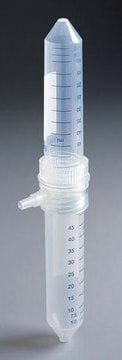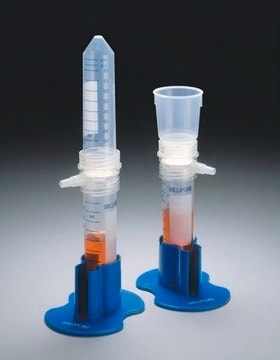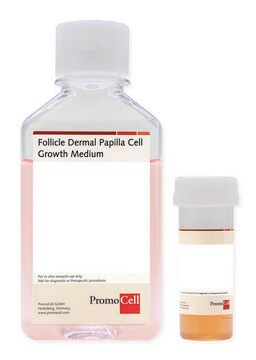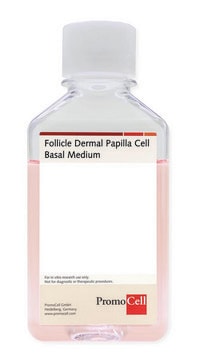SE1M003M00
Millipore® Steriflip® Vacuum Tube Top Filter
pore size 0.45 μm, PVDF membrane, funnel capacity 50 mL, pack of 25 ea
Synonym(s):
Steriflip®-HV Sterile Centrifuge Tube Top Filter Unit, tube top sterile filter unit, tube top vacuum filter, tube top vacuum sterile filtering unit
Select a Size
$391.00
Estimated to ship onMarch 21, 2025
Select a Size
About This Item
$391.00
Estimated to ship onMarch 21, 2025
Recommended Products
material
PVDF membrane
acrylic housing
polypropylene
Quality Level
sterility
sterile
product line
Steriflip®
feature
holdup volume 0.6 mL
hydrophilic
packaging
pack of 25 ea
parameter
45 °C max. temp.
technique(s)
sterile filtration: suitable
H
138 mm
capacity
50 mL
Application
Features and Benefits
- Eliminates messy sample transfer via a simple vacuum-assisted, closed system
- Can isolate cells from cellular debris using any of the various pore-sized nylon net filters
- Ideal for sterilizing small batches of culture media
- Attaches to any standard 50 mL centrifuge tube, eliminating unnecessary materials, time and risk of spillage
Legal Information
Not finding the right product?
Try our Product Selector Tool.
Certificates of Analysis (COA)
Search for Certificates of Analysis (COA) by entering the products Lot/Batch Number. Lot and Batch Numbers can be found on a product’s label following the words ‘Lot’ or ‘Batch’.
Already Own This Product?
Find documentation for the products that you have recently purchased in the Document Library.
Customers Also Viewed
Protocols
Detergents are frequently used to solubilize proteins and nucleic acids during purification, but the presence of detergents may interfere with downstream analyses.
Our team of scientists has experience in all areas of research including Life Science, Material Science, Chemical Synthesis, Chromatography, Analytical and many others.
Contact Technical Service










